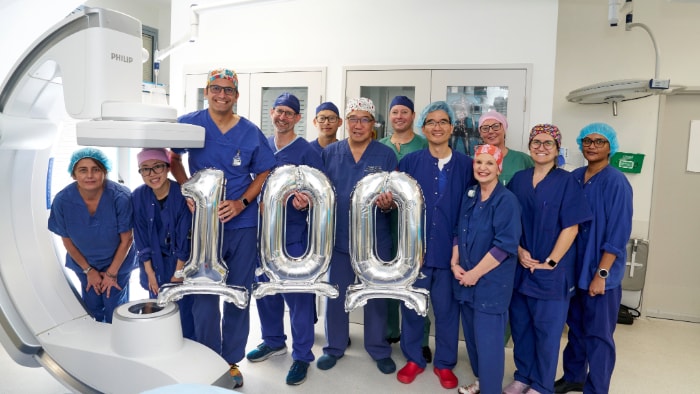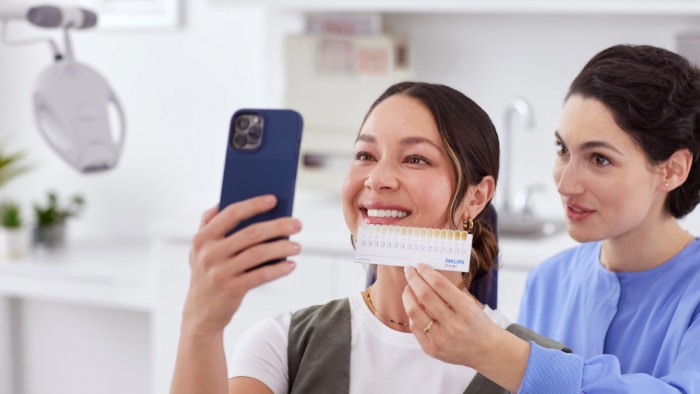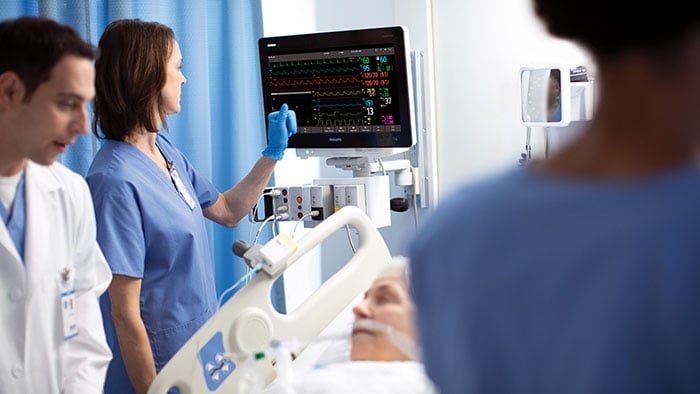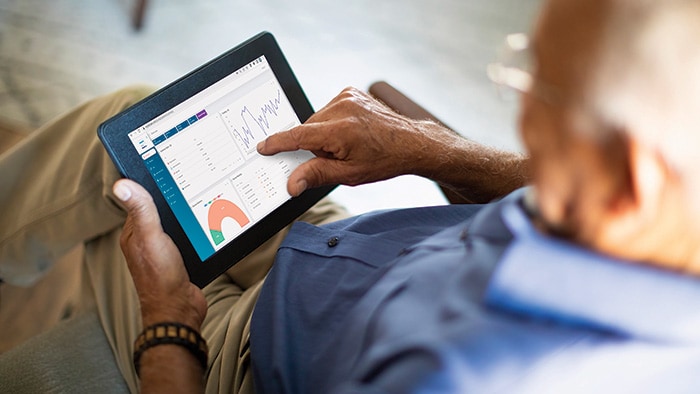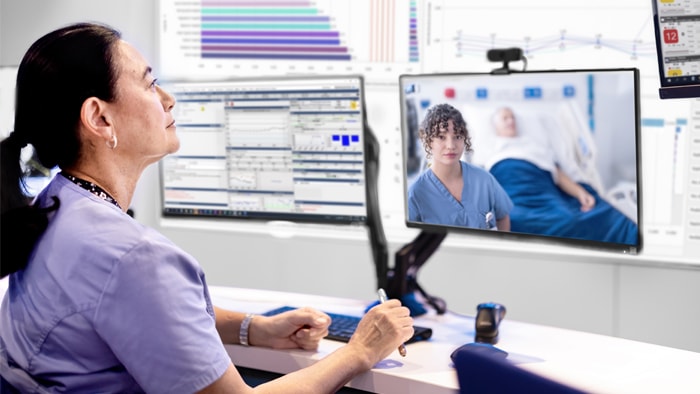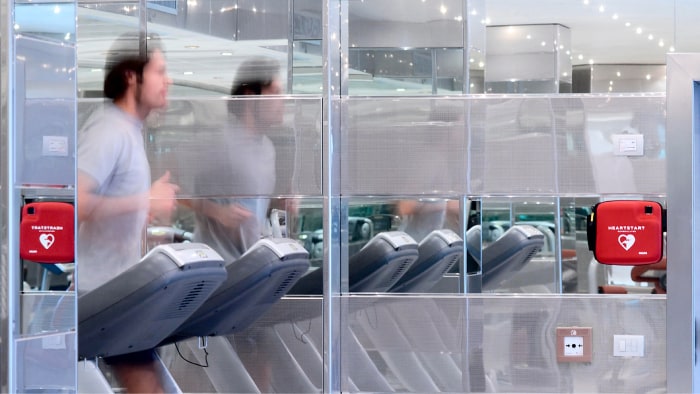March 16, 2018
Philips celebrates World Sleep Day with the release of its global sleep survey results
Sydney, Australia – In line with World Sleep Day, Royal Philips (NYSE: PHG, AEX: PHIA), a global leader in health technology, has released the findings from its annual global survey in the report, “Better Sleep, Better Health. A Global Look at Why We’re Still Falling Short on Sleep”, which looked at what keeps people in 13 countries from getting their optimal night’s rest. As a leading innovator in sleep and respiratory care, Philips aims to use these findings to ignite a conversation about an important yet often forgotten pillar of health and wellbeing: sleep health. It is estimated that more than 100 million people worldwide suffer from sleep apnoea, 80 percent of whom remain undiagnosed1, and that globally, 30 percent of people experience difficulty in initiating and maintaining sleep2. Sleeping well is essential to good health, and yet only one-third of people who suffer from sleep disorders seek professional help3. Through its yearly global sleep survey, Philips aims to amplify the critical importance of restful sleep to the entire world. The Philips annual sleep survey, conducted online in February by Harris Poll on behalf of Philips, reviews the sleep habits of over 15,000 adults across 13 countries (Argentina, Australia, Brazil, China, Colombia, France, Germany, India, Japan, Mexico, Poland, the UK, and the United States), taking a closer look at how sleep is prioritised, addressed, and perceived by populations around the globe.
Sleep is an essential part of our lives. This report shows that people across the globe including Australia are recognising the importance of healthy sleep, and the consequences of poor sleep
Professor Shantha Rajaratnam
Monash Institute of Cognitive and Clinical Neurosciences and Sleep Health Foundation
“About 40% of Australians surveyed recognised that a bad night of sleep impacts a number of aspects of their brain functioning, including concentration (35 percent), motivation (43 percent) and mood (38 percent). The challenge for researchers in this rapidly expanding field is to develop innovative and effective solutions to help people identify and manage poor sleep, including sleep disorders as well as lifestyle-driven practices." Key findings of the survey include:
Sleep is the cornerstone of a healthy lifestyle. On a day to day basis, how well and how long we slept the night before is the single most important variable dictating how we feel
Dr. David White
Chief Medical Officer, Philips Sleep & Respiratory Care
“Thus inadequate sleep can have an immediate impact on our wellbeing unlike exercise or diet. This survey shows that despite knowing sleep is important to overall health, people are still struggling to address it in the same way they would exercise or nutrition. The more we understand how sleep impacts everything we do, the better we can adjust our lifestyle and find solutions that help us get better sleep.” To further amplify this message, Philips has recently co-sponsored the immersive, overnight sleep experience performed by critically acclaimed, international composer Max Richter at SXSW in Austin, Texas on March 12. The concert, which began at midnight and ran until 8:30 a.m. on March 13, saw Richter and a string ensemble perform the entire eight-hour lullaby that was composed to aid relaxation, meditation and sleep. Philips brought together influencers from all over the world in the days before the concert, asking “what happens when you don’t get enough sleep?” The international group of strangers went on tour from Los Angeles to Austin, completing sleep-related challenges and sharing their views on sleep, while learning the ways that Philips is committed to making life better by empowering the world to get a good night’s sleep along the way. Beyond raising awareness through education about the importance of sleep, Philips is innovating sleep solutions rooted in clinical evidence and technical data that work together to promote better health – from clinical solutions designed to better manage sleep apnoea, to modern technology designed to help people start their days naturally. To view additional findings from this year or past year’s global survey, visit: Philips.com/WorldSleepDay. For more information on Philips’ advanced solutions for sleep and respiratory care, follow @PhilipsResp or visit www.sleepapnea.com.
1- http://www.stopbang.ca/osa/prevalence.php 2- M. LeBlanc, S. Beaulieu-Bonneau, C. Mérette, J. Savard, H. Ivers, and C. M. Morin, “Psychological and health-related quality of life factors associated with insomnia in a population-based sample,” Journal of Psychosomatic Research, vol. 63, no. 2, pp. 157–166, 2007. View at Publisher · View at Google Scholar · View at Scopus 3- Ohayon MM et al. Correlates of global sleep satisfaction in the psychiatric diagnosis categories. Psychiatry Clin Neurosci 2002; 56: 239-240
About Royal Philips
Royal Philips (NYSE: PHG, AEX: PHIA) is a leading health technology company focused on improving people's health and enabling better outcomes across the health continuum from healthy living and prevention, to diagnosis, treatment and home care. Philips leverages advanced technology and deep clinical and consumer insights to deliver integrated solutions. Headquartered in the Netherlands, the company is a leader in diagnostic imaging, image-guided therapy, patient monitoring and health informatics, as well as in consumer health and home care. Philips' health technology portfolio generated 2016 sales of EUR 17.4 billion and employs approximately 73,000 employees with sales and services in more than 100 countries. News about Philips can be found at www.philips.com/newscenter.
About the Survey
This survey was conducted online by Harris Poll on behalf of Philips between February 1-13, 2018 among adults ages 18+ in the U.S. (n=2,077, Australia (n=1,032), Argentina (n=1,211), Brazil (n=1,034), China (n=1,010), Colombia (n=1,353), France (n=1,029), Germany (n=1,078), India (n=1,032), Japan (n=1,085), Mexico (n=1,130), Poland (n=1,013), and the UK (n=1,026). This online survey is not based on a probability sample and therefore no estimate of theoretical sampling error can be calculated. For complete survey methodology, including weighting variables, please contact Albertine Schor at albertine.schor@philips.com.
Topics
Contacts

Albertine Schor Brand and Communications Manager Tel: +61 (02) 9947 0040
You are about to visit a Philips global content page
Continue

